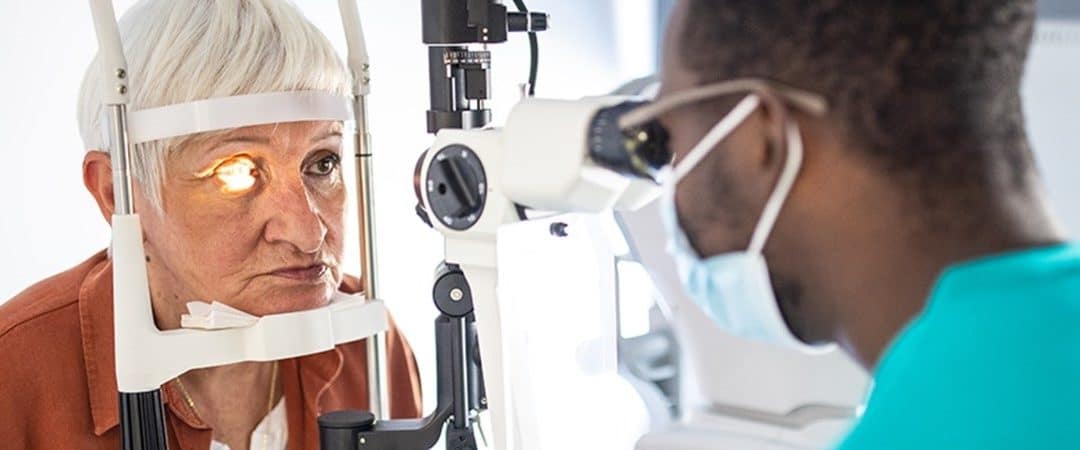New research finds that a simple eye test could help diagnose Alzheimer’s disease in earlier stages.
Alzheimer’s disease and dementia are usually diagnosed when people act uncharacteristically or begin to be forgetful. Traditional MRI scans can help doctors detect Alzheimer’s disease but not in early stages. More advanced MRI scans can help detect the disease in earlier stages but these are still investigational and this type of imaging would be costly.
A recent study published in JAMA Ophthalmology suggests that a retinal exam can predict Alzheimer’s disease at a much younger age.
Retinal Thinning Could Be Indicator of Alzheimer’s
Researchers from the University of Otago in Dunedin, New Zealand, analyzed data from 865 Dunedin Study participants at age 45, looking specifically at the ganglion cell layer (GCL) and the retinal nerve fiber layer (RNFL).
Participants with thicker GCL and RNFL exhibited stronger cognitive performance in childhood and adulthood. However, thinner RNFL was associated with a more significant decline in mental processing speed in childhood and adulthood. According to the study, RNFL could be an indicator of brain health.
“Given we haven’t been able to treat advanced Alzheimer’s, and that the global prevalence of the disease is increasing, being able to identify people in the preclinical stage, when we may still have the chance to intervene, is really important,” said Ashleigh Barrett-Young, Ph.D., Research Fellow at University of Otago (Medical Xpress).
Although further research is necessary to determine whether a thinning retina can indicate Alzheimer’s, this study provides hope that optical scans could assist in predicting cognitive decline.
Comprehensive Eye Exams Can Diagnose Early Eye Disease
When is the last time you scheduled a comprehensive eye exam with dilation? Yearly eye exams can diagnose many common eye diseases like glaucoma and macular degeneration, which can cause irreversible eye damage.
Getting annual eye checkups can also diagnose cataracts, a common vision problem. Cataract-related vision loss is treatable through cataract surgery, a safe, routine procedure. On average, cataract surgeons perform about 10 million cataract operations every year to restore eyesight.
Finally, comprehensive eye exams can also help detect chronic conditions like hypertension and diabetes because these diseases target the eyes. It has been said that your eyes are a window to your overall health, so make your eye health a priority.
Find an ophthalmologist in your area If you are looking for a board-certified ophthalmologist near your home, we can help. Our doctors are ready to provide you and your family members with compassionate care. Call today and make an appointment.

